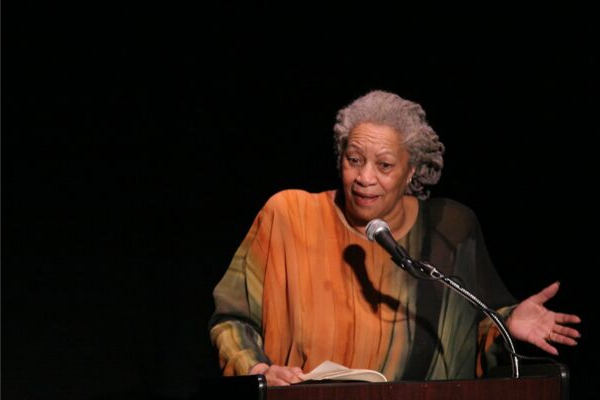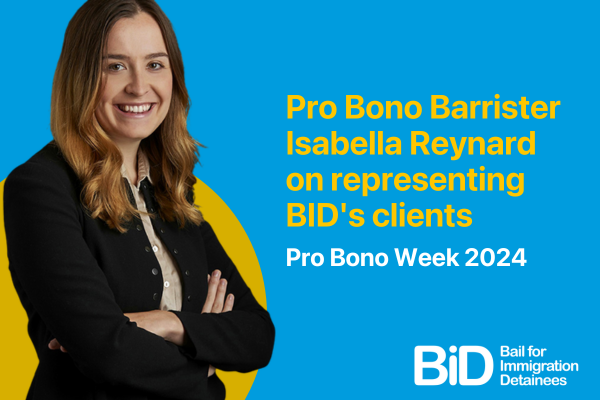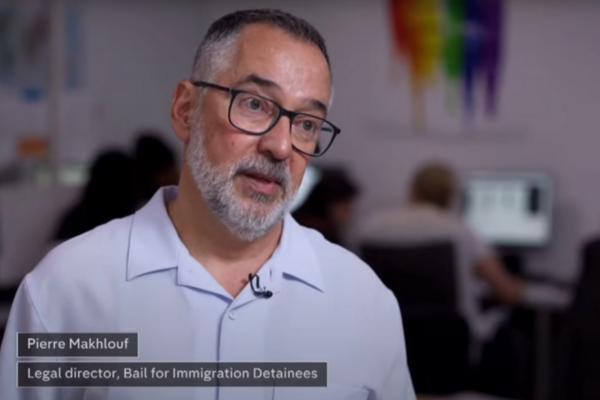The same week Toni Morrison passed away, I visited an Immigration Removal Centre (IRC), otherwise known as a detention centre, for the first time. While there is no obvious link between those two events, all I could think about as I walked through Yarl’s Wood IRC was Toni Morrison’s advice:
‘I tell my students, “when you get these jobs that you have been so brilliantly trained for, just remember that your real job is that if you are free, you need to free somebody else. If you have some power, then your job is to empower somebody else.”’
Upon arrival, my colleague and I handed in our passports, and were then escorted to the Welfare Centre, where we would set up a workshop for detainees looking for help with bail. A chatty guard guides us to the Welfare Centre, where we are to set up shop. As he leads us to where we need to be, a million thoughts run through my head. First of all, that “guard” probably isn’t the correct word to use. I imagine the government has some friendlier, more welcoming description of those whose job solely revolves around watching the detainees and making sure they stay put - in other words, to guard them.
So, I’ll stick to guard.
Whilst he invites us for lunch with his colleagues, we walk through a corridor with mural graffiti celebrating different cultural festivities ranging from Chinese New Year to Rosh Hashanah. When I ask him about the graffiti, the guard says it’s always been there. Walking past it on a daily basis, I guess it just forms part of the decorum for him; he doesn’t give it a second thought. For me, however, it screams hypocrisy – how ironic it is that an institution literally designed to remove people who do not “belong” to this country is celebrating multiculturalism.
The IRC is like a maze – we first pass the administrative offices, then a locked door labelled as “the family wing,” then what looks like a hairdresser, the medical office, and finally, around the corner, the Welfare office. My colleague and I sit down, ready to speak to what would be 15 women and families who are currently held at Yarl’s Wood IRC and are looking for assistance with their bail application. Our chatty guard hangs around to help us if we need anything else, and we start receiving clients.
When my colleague and I go out for our lunch break, I think of Toni Morrison again. The only reason these people we just spoke to are sitting on the other side of the table, and not me, is because I won the geographic lottery. The only reason they are sat across from me is because they hold a different passport. It’s simply a matter of being lucky at birth.
I could write a book about the lives of the people we saw that day and how they ended up where they did, but I’ll summarise it as briefly as possible: our clients came from all over the world, with nationalities ranging from Brazil to Kenya, from Vietnam to Georgia. Most of them had been in the UK for a number of years, in employment. Some of them were highly educated, others had only gotten as far as primary school. Some had children here, others were completely on their own. Only one out of the 15 clients we saw had a criminal record. All of them had come here or had been brought here in hope of a better life for themselves and their children.
At 4PM, as the guard walks us back, he explains how the IRC has been particularly calm for the last few months, and most people only end up being in there for a few weeks. It seems like the system is working better than it used to, he says, and people get stuck less.
He’s not entirely wrong – most people we saw that day had indeed been in detention for 4-5 weeks and not months on end, which means that at the end of that period they either get released and regulate their immigration status - or deported back to their country of origin.
But a system which releases the majority of detainees back into the community cannot be considered to “work better.” From Yarl’s Wood specifically, 84% of detainees from April to June 2019 were released back into the community. Why are these people detained in the first place, if detention is supposedly used only as a last resort to effect removal?
As we head out of the centre and wait for our taxi back to Bedford station, I feel sick in the stomach. Then, I immediately feel guilty for feeling sick. Obviously, it’s not me, but the so-called detainees/immigrants or whatever other word you want to use to differentiate yourself from them, who are suffering. With Morrison’s voice in my head, I remind myself that if I am free, my real job is indeed, to free somebody else.

Read all about a BID volunteer’s visit to the UK’s only detention centre holding women and adult family groups awaiting removal.
Related news
Bail for Immigration Detainees (BID) is a registered Charity No. 1077187. Registered in England as a Limited Company No. 03803669. Accredited by the Immigration Advice Authority Ref. No. N200100147.
We are a member of the Fundraising Regulator, committed to best practice in fundraising and follow the standards for fundraising as set out in the Code of Fundraising Practice.
Log in
| Powered by White Fuse








